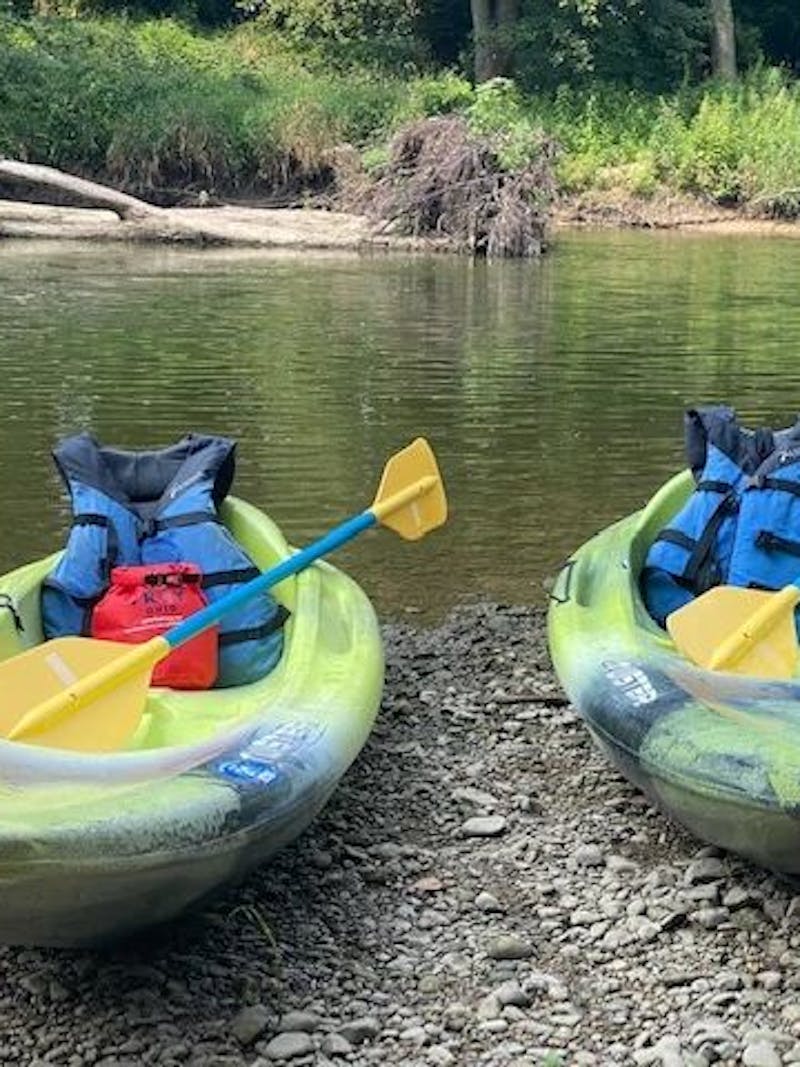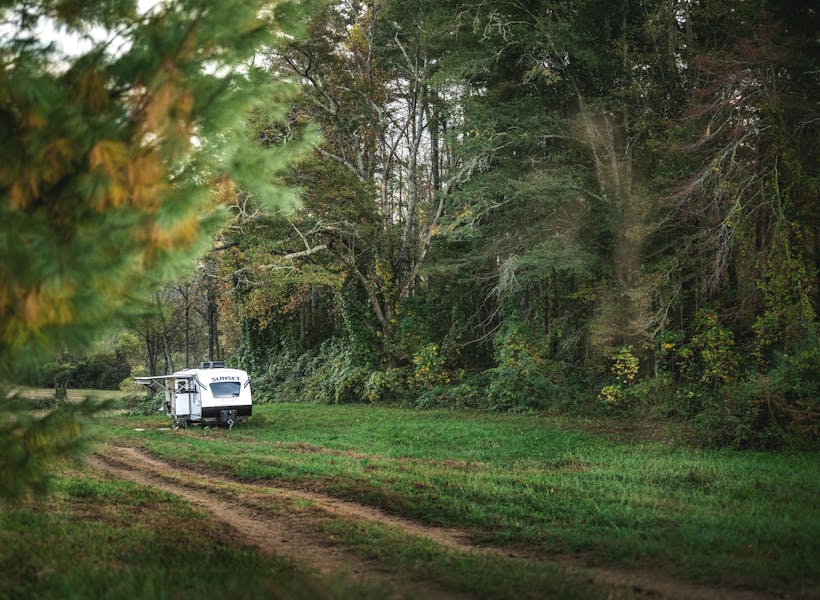Bicycling
Bicycling is a fantastic way to get outside, explore your destination and get some exercise. You can bike around your campground or head to a nearby town for a bite to eat. Bikes are a great alternate form of transportation—they’re clean and don’t create harmful emissions. Plus, you can really take in your surroundings when you’re on a bike (and feel great while doing it).
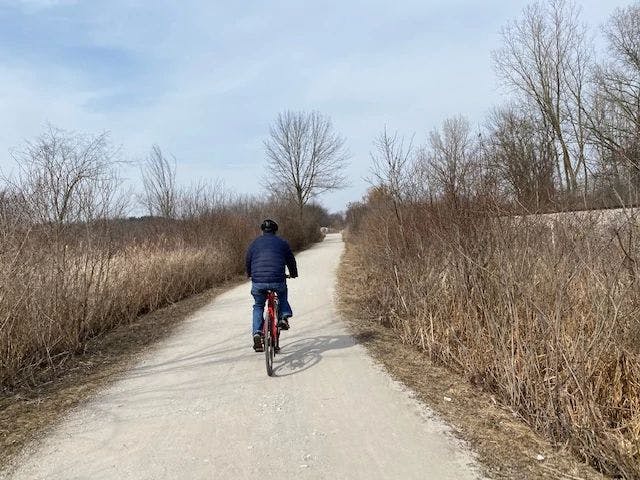
Pro Tip: Campsites and RV parks can be great places to teach your kids how to ride a bike. Most campgrounds have paved or even surfaces, they are often gated or enclosed, and vehicle traffic is usually minimal.
Swimming or Snorkeling
If the weather is warm, getting in the water is an enjoyable way to spend an afternoon. Depending on your destination, you can head to the campground pool for a swim or grab some snorkel gear and check out the ocean. John Pennekamp Coral Reef State Park in Florida is a great place to check out some underwater sea life and learn about protecting the oceans. This park is actually the first of its kind—it is the first underwater state park and it was established to help preserve the only coral reef ecosystem in the Continental United States.
Pro Tip: You can camp at John Pennekamp Coral Reef State Park, but there are a limited number of sites available and they book up fast.
Fishing
Fishing is one of America’s favorite pastimes, and it is a great way to enjoy the local waterways while camping. Many lakes at campgrounds are regularly stocked with fish or have a catch-and-release rule to help manage fish populations. Through fishing, you can teach your kids how to hook, bait and cast, as well as the importance of carefully managing fish populations so they aren’t over-exploited. If you are fishing on a public waterway, you will need a fishing license. Do your research in advance because each state's recreational fishing laws are different. If you’re headed to a campground, find out the rules for their fishing lake before you cast your first line.
Pro Tip: Using circle hooks instead of J hooks minimizes bycatch and causes less habitat damage.
Hiking
Hiking is one of my all-time favorite sustainable ventures while camping. The simple act of walking in nature is cathartic and a great way to improve your mental and physical well-being. And if walking in the woods isn’t sustainable enough, you can also pick up trash along the way. Bring a small bag with you to collect any trash you might find, and then properly dispose of it when you’re done with your hike. You can even pledge to pick up a certain amount of trash from public lands. Whenever we hike, our family motto is to take only pictures and leave only footprints.
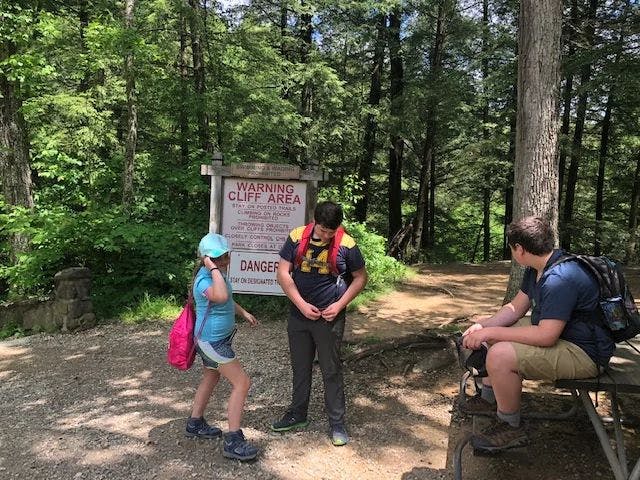
Pro Tip: When hiking, don’t go off trail, as this can damage the surrounding plant species.
Paddling
It might take a few times to get the hang of it, but kayaking, canoeing and paddle boarding are excellent outdoor activities. And best of all? They are all sustainable and powered by you—no motor required. Even if you don’t own a kayak or paddle board, many campgrounds offer them as rentals for their guests. Do a little research before you book your site to see what amenities are offered at your campground.
Pro Tip: If you’re looking for the ultimate kayak adventure, Voyageurs National Park is calling your name. This pristine Northern Minnesota getaway is home to America’s top outdoor freshwater adventures.
Local Shopping
On your next camping trip, try visiting a local farmer’s market. This is a great way to learn more about the area you’re staying in and meet some local farmers and crafters. Many vendors are eco-friendly and extremely focused on the sustainability of their products, so it’s a win-win. You can usually sample the food or produce before you buy it, which is always fun for kids.
Pro Tip: Try to plan a meal or two entirely out of items you get from a local farmer’s market. You’ll help support the local community and it’s a fun way to try out a new recipe for your family.
Playing Games
There is no better way to enjoy an evening at the campsite than playing a card or board game. Games are reusable and a fun way to connect with friends and family while camping. Plus, most board games don’t require any power or electricity so they won’t be a drain on your resources.
Pro Tip: If you really want to make this a sustainable activity, buy your games from a second-hand shop or thrift store.
Relaxing
Be sure and take some time to enjoy all of the features and amenities at your campground—let the park be your destination. Make some breakfast at your RV’s outdoor kitchen, watch the clouds pass, read a book in a hammock, go on a walk, explore the camp store, or simply sit by the campfire. When you’re camping sustainability, you’re creating an atmosphere where you can fully relax and recharge.
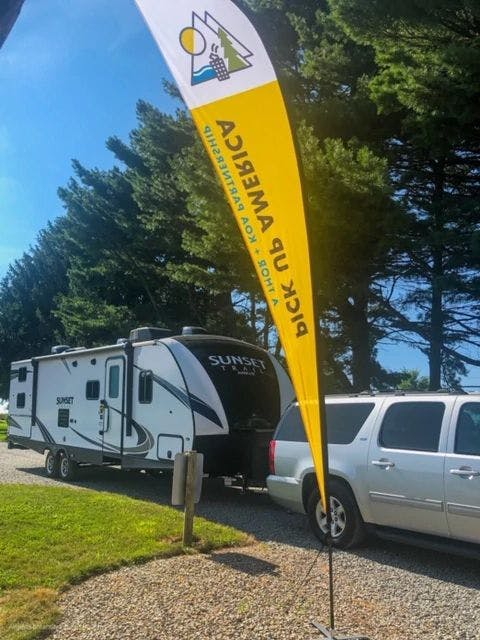
Pro Tip: Many campgrounds and RV parks are looking for ways to be more eco-friendly. These can range from big things like solar power and water conservation to small things like recycling services and paperless stores. Ask what type of green or sustainable services your campground has to offer.
These eco-friendly camping activities are just a starting point to help you think about having a more sustainable outdoor experience. We can all join in and take ownership by creating a cleaner, safer environment for future campers. Afterall, when we collectively take small steps, we can make huge strides.
